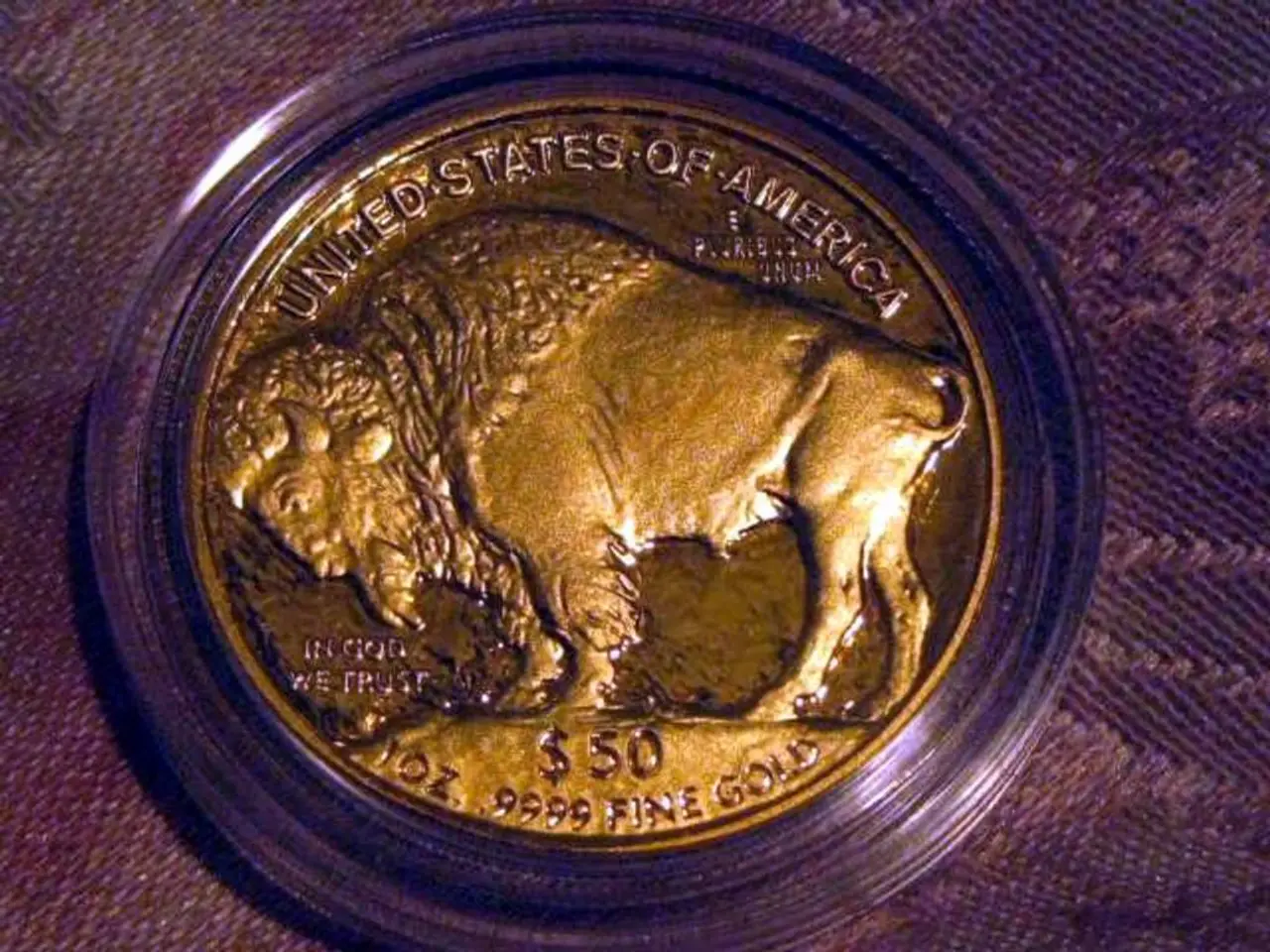Trump finalizes agreement to propel the Crypto Act, a bill aimed at boosting cryptocurrency regulation and innovation.
**Headline:** The GENIUS Act: A Step Forward in Crypto Regulation Amidst Controversy
The Guiding and Establishing National Innovation for US Stablecoins Act, or the **GENIUS Act**, is making waves in the U.S. as part of a broader push to regulate cryptocurrencies. The bill, which passed with bipartisan support, aims to establish a regulatory framework for stablecoins, a type of cryptocurrency pegged to the value of a traditional asset like the U.S. dollar[1][3].
The journey of the GENIUS Act has not been without controversy. The bill was initially rejected by the House of Representatives on July 15, 2025, due to concerns about a potential backdoor for central bank digital currency (CBDC) in the bill[5]. However, President Donald Trump played a key role in revitalizing the act, securing 11 out of the 12 Republican votes required to pass it[2].
The GENIUS Act focuses primarily on creating a comprehensive oversight framework for stablecoin issuers. While this regulation is intended to stabilize the market, concerns exist about the potential impact on innovation in the crypto space[1][2]. The bill itself does not directly address CBDCs, but it was passed alongside the **Anti-CBDC Act**, which prohibits the Federal Reserve from issuing a central bank digital currency[4]. This legislation reflects concerns about privacy and the centralization of financial authority associated with CBDCs.
Opponents of the bill argue that it could enable the use of CBDCs, which they view as a threat to financial privacy[5]. Advocates, however, argue that the GENIUS Act would allow for the creation of a safer system for stablecoins, which would be fully backed and have a reserve[6].
The successful passage of the GENIUS Act is a significant step towards providing regulatory clarity for cryptocurrencies, which could enhance market stability and encourage innovation[2][4]. The new regulatory framework may reshape the structure of the crypto market, potentially affecting the adoption and integration of stablecoins and other digital assets into mainstream finance[2].
By opposing CBDCs, the legislation aims to preserve a decentralized financial system, ensuring that financial transactions remain private and less susceptible to centralized control[4]. The cryptocurrency industry has invested $119 million in pro-crypto candidates, indicating a shift in political direction[7]. As the GENIUS Act awaits further legislative action or presidential signature for full implementation, investors and blockchain advocates eagerly await the final decision.
References: [1] Coindesk. (2025). House Rejects GENIUS Crypto Act. https://www.coindesk.com/policy/2025/07/15/house-rejects-genius-crypto-act/ [2] Cointelegraph. (2025). Trump Secures Republican Votes for GENIUS Act. https://cointelegraph.com/news/trump-secures-republican-votes-for-genius-act [3] Investopedia. (2025). Guiding and Establishing National Innovation for US Stablecoins Act. https://www.investopedia.com/terms/g/genius-act.asp [4] CoinDesk. (2025). House Passes Anti-CBDC Act. https://www.coindesk.com/policy/2025/07/15/house-passes-anti-cbdc-act/ [5] Decrypt. (2025). House Rejects GENIUS Crypto Act Over CBDC Concerns. https://decrypt.co/60073/house-rejects-genius-crypto-act-over-cbdc-concerns [6] CoinDesk. (2025). Trump Emphasizes Importance of GENIUS Act. https://www.coindesk.com/policy/2025/08/01/trump-emphasizes-importance-of-genius-act/ [7] Politico. (2025). Crypto Industry Investing in Pro-Crypto Candidates. https://www.politico.com/news/2025/09/01/crypto-industry-investing-in-pro-crypto-candidates-00039831/
- The GENIUS Act, which focuses on regulating cryptocurrencies and establishing a framework for stablecoins, has stirred discussions in the realm of policy-and-legislation, with debates centered around its potential impact on innovation in the crypto space.
- The politics surrounding the GENIUS Act has seen a shift in the cryptocurrency industry's general-news discourse, with investments amounting to $119 million being made in pro-crypto candidates, reflecting a new political direction.






